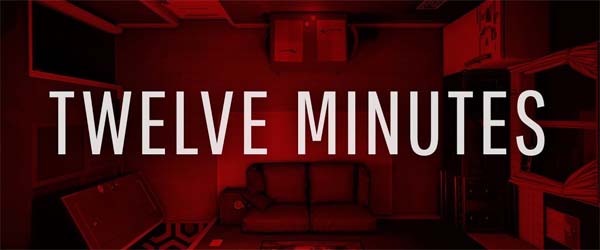
It may have taken almost 20 years after Majora's Mask, but it looks like time loop games have suddenly become an emerging fad. Not that it's a bad thing, per se. Outer Wilds has, after all, become one of my favorite games ever. Twelve Minutes is much more scaled-down and far less ambitious than Outer Wilds; it takes place entirely within a small, one-bedroom apartment, and the individual loops average 5-10 minutes instead of the 22-minute loops of Outer Wilds.
12 Minutes has a high-degree of responsiveness to player actions.
12 Minutes is also a much more straight-forward point-and-click puzzle-adventure game in a vein much more reminiscent of classic Lucasarts games. There's only a handful of interactive objects in the apartment, and each one has a variety of different uses. In this way, 12 Minutes rather explicitly telegraphs the solutions to puzzles, since there's only a handful of things that the player can even try. The options available to the player lead the player down the path to progress, and if you ever get stumped, idle conversation will often provide clues as to what you could maybe try next.
Although the seams in the facade do become evident if the player gets stuck repeating a particular loop too many times, I did find myself impressed by just how naturally reactive 12 Minutes is to player interference. The wife and cop will react believably to many things that the player might do, including some off-the-wall things. The wife might comment on weird or rude behavior by me, or the entire time loop may go in a completely unexpected direction because I chose to do something slightly different. It's a surprisingly wide and robust possibility space.
The short duration of time loops, and the relatively small amount of intractable objects really encourages lots of player experimentation. Screwing up any given loop doesn't lose a whole lot of progress, so there's very little penalty for trying some seemingly-crazy solution on a whim, and sometimes, it will even reward the player with some new piece of information that you didn't have before, or a clue to how you might proceed.
12 Minutes provides lots of subtle clues for ways to proceed.
12 Minutes is also quite good about providing clues that are subtle enough to not be obvious spoilers of what to do next, but which might still make you facepalm in retrospect "of course that's what I should have done!" What makes these clues work without feeling like they solve the game for you is that there is often multiple ways to go about testing them. The wife making an off-hand comment about needing to clean the closet is, in retrospect, an obvious clue that the player should check the closet. There is a useful object in there, but its usefulness isn't necessarily immediately obvious. What might also not be immediately obvious is that there's another way that the closet is immediately useful, it just has nothing to do with the object you found there.
[More]